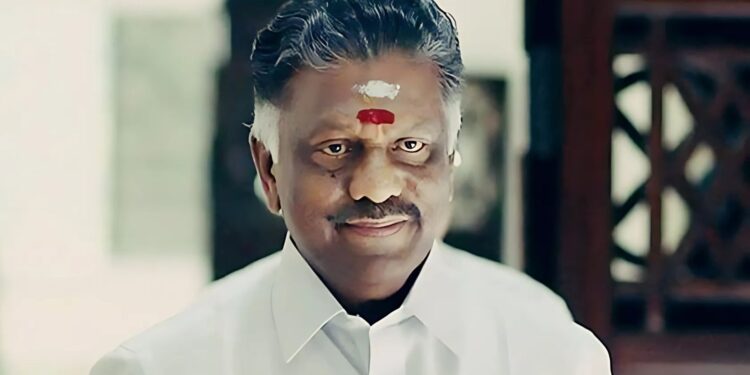The Supreme Court’s stay on the reopening of the disproportionate assets (DA) case against former Tamil Nadu Chief Minister O. Panneerselvam (OPS), his wife, and in-laws has added a significant twist to a long-running legal battle. The Bench, comprising Justices Hrishikesh Roy and SVN Bhatti, instructed the Tamil Nadu Police and the original complainants to respond to Panneerselvam’s appeal, which challenges the Madras High Court’s decision to restore the case.
The case stems from a 2006 DA case filed by the Directorate of Vigilance and Anti-Corruption (DVAC), alleging that Panneerselvam and his relatives amassed assets disproportionate to their known sources of income. In 2012, the Sivaganga Chief Judicial Magistrate’s Court allowed DVAC to withdraw the case. However, in October this year, the Madras High Court overturned that decision, citing discrepancies in the DVAC’s handling of the case. The High Court found it suspicious that DVAC initially reported a significant increase in Panneerselvam’s assets but later moved to discharge him when the AIADMK came to power in 2011.
The High Court’s decision restored the case, and the matter is now set to be heard in the Principal Sessions Court in Madurai, which has been designated as a special court for hearing cases involving legislators. The Court also warned that if the accused adopt any delaying tactics in the trial, their bail could be revoked.
Panneerselvam’s legal team, led by senior advocates Dr Abhishek Manu Singhvi, Sidharth Luthra, Mukul Rohatgi, and S. Nagamuthu, has filed an appeal before the Supreme Court, seeking to quash the High Court’s order. In response, the Supreme Court has temporarily stayed the proceedings, effectively halting the legal action against OPS and his family for the time being.
The larger context of the case involves multiple legal proceedings concerning Tamil Nadu ministers. Justice N. Anand Venkatesh of the Madras High Court, who has been overseeing such cases, has initiated suo motu revision proceedings against several current ministers, including Higher Education Minister K. Ponmudi, and Ministers KSSR Ramachandran and Thangam Thennarasu, in relation to similar charges. The Supreme Court has also stayed these cases.
This development highlights the ongoing tensions between legal accountability and political influence in Tamil Nadu, with the Supreme Court’s intervention signalling a deeper concern over potential delays and judicial integrity in cases involving public officials. The next hearing in this matter will continue to have significant implications for how cases against politicians are handled in the courts.

















